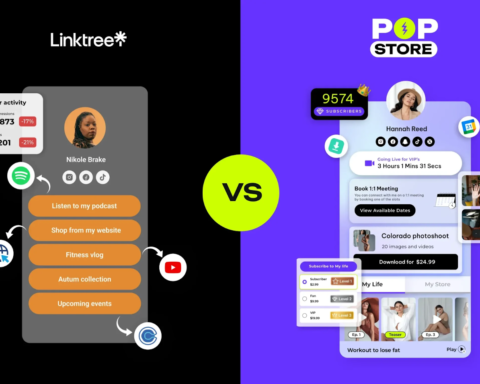In Texas, navigating health insurance without the security of employer-sponsored coverage can be a daunting task. Whether you’re between jobs, self-employed, or simply not provided with health insurance through your employer, finding the right health coverage is crucial to ensuring your wellbeing. The good news is that there are multiple options available to Texans, each tailored to meet different needs and circumstances. This article will explore those options, helping you make informed decisions about your health insurance coverage.
Understanding Your Health Insurance Options
COBRA Insurance
If you’ve recently left a job that provided health insurance, you may be eligible for COBRA (Consolidated Omnibus Budget Reconciliation Act) continuation coverage. COBRA allows you to continue your existing employer-sponsored health insurance for a limited period, typically up to 18 months.
While COBRA can be a convenient option because it allows you to keep the same coverage, it can also be expensive. You will be responsible for the entire premium, including the portion previously paid by your employer, plus a small administrative fee. For many, the high cost makes COBRA less than ideal, especially if you are on a limited income or have no income at all.
Marketplace Insurance Plans
The Health Insurance Marketplace, established under the Affordable Care Act (ACA), offers a range of health insurance plans for individuals who do not have employer-sponsored coverage. These plans are available in various levels—Bronze, Silver, Gold, and Platinum—offering different degrees of coverage and costs.
One of the advantages of Marketplace plans is the availability of subsidies to lower your premium costs. These subsidies are based on your income, meaning that the lower your income, the more assistance you can receive. In Texas, the Marketplace offers many options that can fit different budget levels and health needs.
It’s important to note that enrollment in Marketplace plans is typically limited to the open enrollment period, which usually runs from November to December. However, you may qualify for a special enrollment period if you experience certain life events, such as losing job-based coverage, getting married, or having a baby.
Medicaid
Medicaid is a joint federal and state program that provides health coverage to low-income individuals and families. In Texas, Medicaid eligibility is primarily determined by income, household size, and other factors such as disability, pregnancy, or age.
Texas has one of the strictest Medicaid eligibility requirements in the country, especially for non-disabled adults without children. However, if you qualify, Medicaid can provide comprehensive health coverage at little to no cost.
For those who do not qualify for Medicaid but have children, the Children’s Health Insurance Program (CHIP) is available to provide coverage for children in families with incomes too high to qualify for Medicaid but too low to afford private insurance.
Short-Term Health Insurance Plans
Short-term health insurance plans are another option for those seeking temporary coverage. These plans are designed to provide coverage for a limited period, typically up to 12 months, with the possibility of renewal for up to 36 months.
Short-term plans are generally less expensive than Marketplace plans, but they also offer more limited coverage. They are not required to cover essential health benefits, such as maternity care, prescription drugs, or mental health services. As such, short-term plans are best suited for healthy individuals who need a safety net while they transition between jobs or other insurance options.
Faith-Based Health Plans
Faith-based health plans, also known as health care sharing ministries, are another option for those without traditional employment-based health insurance. These plans are not insurance in the traditional sense but rather a way for members of a shared faith community to pool resources to cover medical expenses.
Members typically pay a monthly contribution, similar to a premium, and when a member incurs medical expenses, they submit their bills to the community for sharing. While faith-based plans can be more affordable, they may not cover all types of medical care, particularly those that conflict with the community’s religious beliefs.
Catastrophic Health Plans
Catastrophic health plans are available through the Marketplace for individuals under 30 and for some people with a hardship or affordability exemption. These plans have lower premiums but very high deductibles, meaning they only provide coverage after you have paid significant out-of-pocket costs.
Catastrophic plans are designed to protect you in the event of a worst-case scenario, such as a serious accident or illness. They typically cover three primary care visits per year before the deductible is met, as well as preventive services at no cost.
Tips for Choosing the Right Plan
When selecting a health insurance plan in Texas without employer coverage, consider the following tips:
- Evaluate Your Health Needs: Consider your current health status and any anticipated medical needs. Do you take prescription medications? Do you have a chronic condition that requires regular care? Make sure the plan you choose covers these needs.
- Compare Costs: Look beyond just the monthly premium. Consider the deductible, copayments, and out-of-pocket maximums. A plan with a low premium but a high deductible may end up costing you more if you need significant medical care.
- Check the Provider Network: Ensure that your preferred doctors, hospitals, and pharmacies are in-network with the plan you choose. Going out-of-network can result in significantly higher costs.
- Understand the Benefits: Make sure the plan covers the services you need, such as mental health care, maternity care, or specialty medications. Review the summary of benefits carefully before making a decision.
- Consider Future Needs: If you anticipate needing more extensive care in the future, such as surgery or specialized treatment, choose a plan that offers robust coverage.
Resources for Assistance
If navigating health insurance on your own feels overwhelming, several resources can help:
- Health Insurance Navigators: These are individuals or organizations trained to help consumers, small businesses, and their employees as they look for health coverage options through the Marketplace, including completing eligibility and enrollment forms. In Texas, you can find a Navigator through local organizations or the Health Insurance Marketplace website.
- Insurance Brokers: Licensed insurance brokers can provide personalized advice and help you compare different plans. They can assist you in understanding the nuances of each option and find the best fit for your needs.
- HealthGuys: At Health Guys, we specialize in helping individuals and families find the right health insurance coverage. Our team of experts can guide you through the process, answer your questions, and help you choose the best plan for your situation.
Conclusion
Navigating health insurance in Texas without employer-sponsored coverage doesn’t have to be daunting. Whether you’re considering a Marketplace plan, Medicaid, or short-term coverage, it’s crucial to assess your needs, compare your options, and make an informed decision. With the right plan, you can protect your health and financial wellbeing, even without employment-based coverage.
Keep an eye for more news & updates on EssentialTribune!








